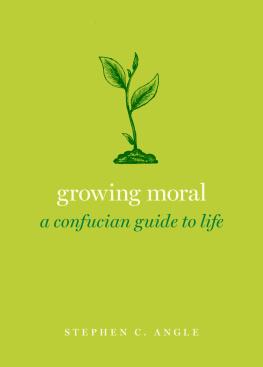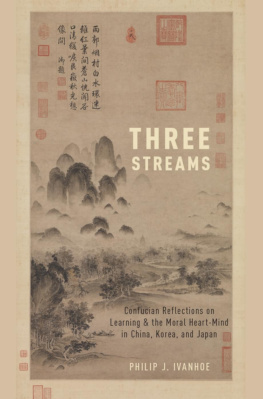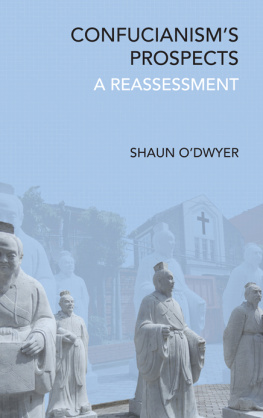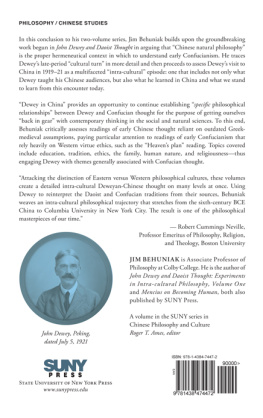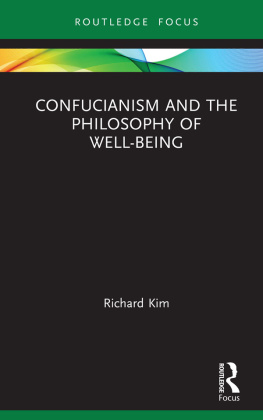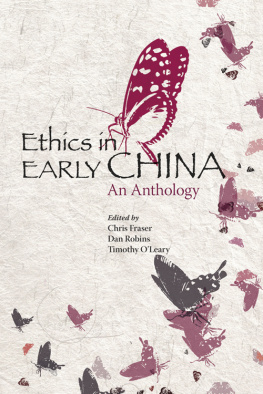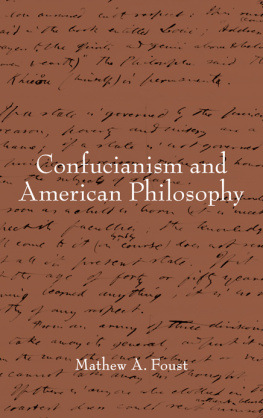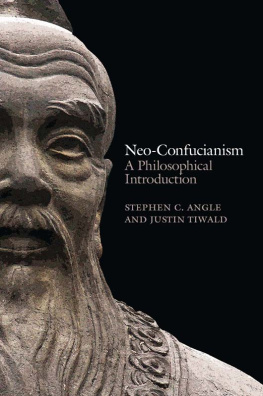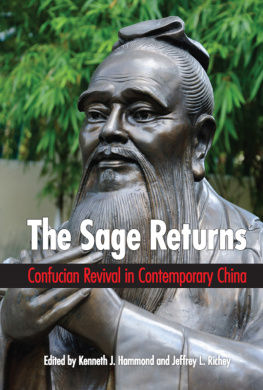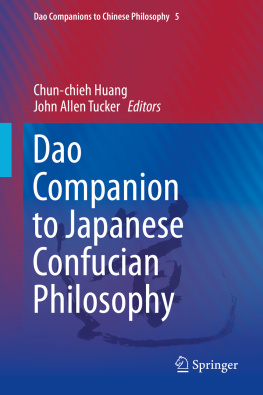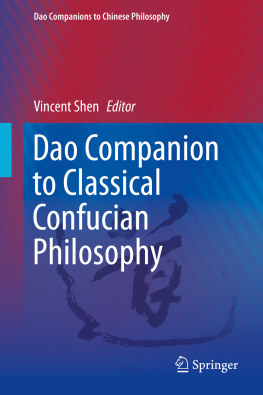Confucian traditions are often regarded in purely historical terms. Having been transmitted and transformed over nearly two and a half millennia, this focus on history is well-justified. But Confucian traditions are by no means solely of historical interest and significance.
In the last quarter century, amid remarkable advances in science and technology that have dramatically transformed practices in virtually every domain of human endeavor, recognition has dawned that human activity is capable of adversely affecting planetary-scale phenomena such as climate and that the greatest challenges we will face in the coming decades will not be technical but ethical. We now know that human beings and our ways of being in the world are complicit in the predicaments we are facingamong them global warming; the persistence of hunger in a world of food excesses; widening gaps of wealth, income, resource use, and risk; and the increasingly intimate interdependence of economic and political vitality and volatility. Secondly, we know that these predicaments are not constrained by national or social boundaries. Pandemics and global warming have global reach and affect everyone regardless of nationality or status. Thirdly, an organic relationship obtains among this set of pressing challenges that renders them zero-sum: We either address them all or we can resolve none of them. In short, these challenges cannot be met seriatim by individual players but must be addressed instead by a world community acting in concert. Finally, the predicaments with which we find ourselves ever more powerfully confronted can only be addressed by effecting a radical change in human intentions, values, and practices.
When we look for cultural resources that will enhance capabilities for resolving these global predicaments, primary among them are values and practices that will support replacing the familiar competitive pattern of single actors pursing their own self-interest with a collaborative pattern of players strengthening possibilities for coordination across national, ethnic, and religious boundaries. And it is in this context that Confucian traditions assume distinctive contemporary relevance. As is now widely appreciated, Confucian cultures celebrate the relational values of deference and interdependence and understand persons as constitutively embedded in and nurtured by unique transactional patterns of relations. This series is committed to exploring how and to what extent contemporary Confucian ethics that locate moral conduct within a thick and richly textured pattern of family, community, and natural relations may be a force for challenging and changing the international order. At the same time, the series is committed to raising critical questions retrospectively about the contributions and failings of Confucianism in its long history as a pan-Asian phenomenon, as well as prospectively about the globalization of Confucian values in response to contemporary global dynamics.
A key element in our Confucian Cultures series is the translation of seminal works in Confucian cultures from Asian language sources. While Asian scholars continue to translate much of contemporary Western scholarship into Asian languages, including Western commentaries on their own cultures, the opposite has not been true. Translations of the best Asian scholarly literature into English remain rare.
But the scope of the series is not limited to promoting literacy on Confucian cultures as understood within those cultures themselves. An essential parallel element in the series will be critical research on Confucianism by scholars outside of these Asian traditions. Moreover, the series is committed to approaching Confucian traditions in a manner that respects the diversity of those traditions, and will welcome scholarship that looks at Confucian cultures through a range of disciplinary lenses, including literary, anthropological, and historical perspectives, and those that are philosophical and religious. Finally, the series is committed to publishing works that explicitly place Confucian thought and cultures in conversation with other traditions. This, we hope, will contribute to the collaborative realization of a more just, equitable, and harmonious global future.
In this inaugural volume in the series, Lee Ming-huei offers an interpretation of traditional Confucian themes from a contemporary perspective. In light of the demise of Confucianism as a state ideology in East Asia, Lee surveys the prospects Confucianism still has as a cultural resource for the modern world. With a strong sense of history and an unrelentingly rigorous philosophical methodology, he assesses the strengths, the failures, the possibilities, and the limitations that might still be relevant to the moral education and the social and political philosophies of these different yet continuous Asian Confucianisms.
Roger T. Ames and Peter D. Hershock Series Editors
The project of comparative philosophy is almost exclusively associated with Western philosophers opening their minds and hearts to non-Western ways of thinking. Even the term comparative philosophy was coined by a small group of Western philosophers who founded the University of Hawaiis philosophy program. This new vision was borne primarily through the imagination of Charles A. Moore, who wished to create an opportunity where outsiders could most closely approach the ideal of understanding other traditions as the people of those traditions understand themselves. We may forget in the twentieth-first century how radical an idea this must have been in 1939, when the first East-West Philosophers Conference was held.
As Moore realized, one must understand from within before creating a new philosophical approach. And before a new approach can gain ascendancy as methodthat is, before considering the way in which comparative philosophy is to be donethe way in which it is approached is fundamental and crucial. In other words, we need to have a clear direction before the process develops and a theoretical framework before techniques and practices are put into placeonly after the approach to comparative philosophy is developed, is there an opening for deciding what method or methods we wish to engage.
But comparative philosophy is not exclusively a Western undertaking as some think. In fact, many non-Western philosophers have been engaging in their own approaches and development of methods. In seeking an understanding of European ways of thinking, Ming-huei Lee left his native Taipei for the University of Bonn, where he studied the philosophy of Immanuel Kant. Today, he is one of New Confucianisms most prominent thinkers. In Confucianism: Its Roots and Global Significance , English-language readers get a rare opportunity to read in a single volume the work of one of Taiwans most distinguished scholars. Although Ming-huei Lee has published in English before, the corpus of his non-Chinese writings is in German. Readers of this volume will soon discover the hard-mindedness and precision of thinking so associated with German philosophy as they enter into his discussions of Confucianism. As readers progress through this book, they will be constantly reminded that all philosophy should be truly comparative.
In arranging and editing this book, I have tried as much as possible to let Lee jiaoshou s philosophical insights and deep understandings of Confucianism come forth both as he intended as well as in the spirit of comparative philosophys originary time. At times, I have added some minimal text for clarity purposes and enhancement of his points. In no way has the meaning or style of his text been altered. All edited and content contributions have been approved by Professor Lee. The book has been divided into three sections: Classical Confucianism and Its Modern Reinterpretations, Neo-Confucianism in China and Korea, and Ethics and Politics. These sections evince just some of the range of Ming-huei Lees thinking as well as his inclusive reach of Confucian philosophy to the whole of East Asia, especially to Korea. In the Ethics and Politics section, readers will get a taste for the return to his own tradition through the lens of Kantian philosophy with his analysis of Confucius and the virtue ethics debate in Confucian philosophical circles. Lees thinking through Mou Zongsans interpretation of Confucianism, Zhu Xi and the Huxiang scholars debate on


